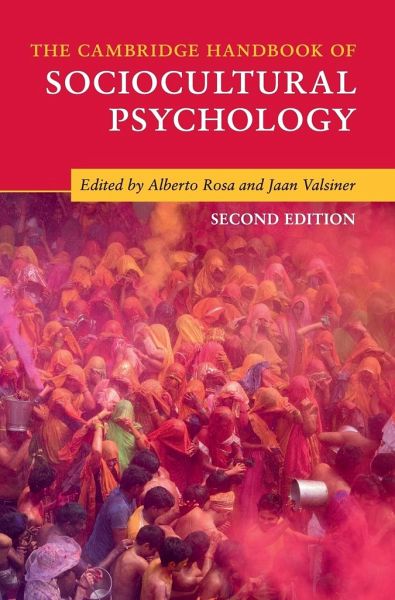
The Cambridge Handbook of Sociocultural Psychology
Versandkostenfrei!
Versandfertig in 1-2 Wochen
189,99 €
inkl. MwSt.
Weitere Ausgaben:

PAYBACK Punkte
95 °P sammeln!
Sociocultural psychology is a discipline located at the crossroads between the natural and social sciences and the humanities. This international overview of the field provides an antireductionist and comprehensive account of how experience and behaviour arise from human action with cultural materials in social practices. The outcome is a vision of the dynamics of sociocultural and personal life in which time and developmental constructive transformations are crucial. This second edition provides expanded coverage of how particular cultural artefacts and social practices shape experience and b...
Sociocultural psychology is a discipline located at the crossroads between the natural and social sciences and the humanities. This international overview of the field provides an antireductionist and comprehensive account of how experience and behaviour arise from human action with cultural materials in social practices. The outcome is a vision of the dynamics of sociocultural and personal life in which time and developmental constructive transformations are crucial. This second edition provides expanded coverage of how particular cultural artefacts and social practices shape experience and behaviour in the realms of art and aesthetics, economics, history, religion and politics. Special attention is also paid to the development of identity, the self and personhood throughout the lifespan, while retaining the emphasis on experience and development as key features of sociocultural psychology.




